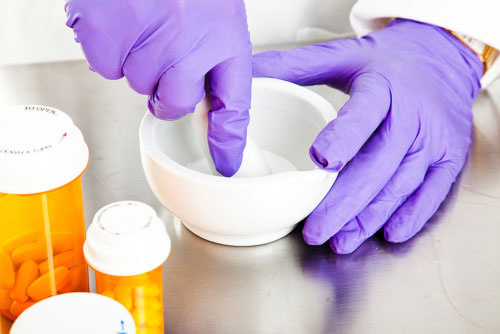Imagine an industry where approximately 40% of firms inspected receive Warning Letters and nearly 100% receive substantial FDA Form 483 observations. Publically available information indicates that the FDA has issued 19 Warning Letters to compounding Pharmacies just in 2015 and 41 and counting to date in the last two and a half years. There have been numerous recalls due to lack of sterility assurance, labeling errors, compounding errors (sub- and super-potent, wrong or unapproved ingredients) and for compounding of unapproved products. No Compounding Pharmacy has resolved or had their Warning Letter lifted. Several Compounding firms have shut their doors and several injunctions have been filed against individuals and firms in this industry.
The Federal Drug Quality and Security Act (DQSA), issued in December 2013, defines the compliance requirements for 503A Classical Compounders and 503B outsourcers (DQSA calls for the Secretary of HHS to promulgate GMP regulations, but only a draft guidance has been issued as of yet). Until the Secretary issues the final GMP regulations for 503B Compounding Pharmacies, which will likely mimic drug GMPs, the FDA will continue to enforce 21 CFR 210 and 211 GMPs for drug manufacturing at the compounding pharmacies.
By analyzing over 100 publicly available FDA 483s posted on FDA Website, as well as approximately 40 plus Warning Letters (FDA issued 25 in fiscal year 2014 and 19 in 2015) and several injunctions, the following are the most frequently cited adverse observations from FDA:
Top Ten – All affect Sterility Assurance and are cited greater than 60% of the time in inspections:
- Inadequate facilities designs and controls, inadequate smoke studies
- Inadequate or lack of environmental monitoring of facility and people
- Inadequate laboratory procedures and controls (definition of a “batch”, sampling and testing controls)
- Lack of Standard Operating Procedures to prevent microbial contamination
- Inadequate deviation/variance controls and lack of adequate investigation
- Stability program nonexistent or does not support beyond use dating
- Validation of final sterilization (filter or terminal), media fill design
- Inadequate cleaning and disinfecting programs
- Batch release (most done at risk or with no testing for sterility, potency, identity and pyrogens)
- Control of equipment (preventive maintenance and calibration program inadequate or nonexistent)
The top ten are followed by: personnel qualifications, training and skill maintenance, no segregation of beta lactams for other preparations, ineffective quality unit, labeling matters, personnel not trained in GMPS, change control, incoming supplies acquisition and approval, inadequate raw material controls, inadequate separation of operations, record keeping, inadequate SOPs for operations.
Many Compounding Pharmacies are taking the attitude that “we’ll keep going as we have in the past until we get blasted by our Board of Pharmacy or FDA.” Many firms assume that relief is on the way through additional congressional actions as in the past, but this is unlikely as FDA is not likely, based upon past experience and recent history, to change their expectations on sterility assurance for compounded sterile preparations.
FDA has language in many of the Warning Letters recommending firms to hire third parties to assess their operations and provide technical advice for corrective action plans. Many of the consultants being hired come from the classical compounding backgrounds and may not have the practical expertise to provide advice that will meet GMP regulations, especially in areas of facilities design and controls, environmental monitoring and many of the areas listed above. It is highly recommended that Compounding firms hire third-party consultants that have experience in both drug manufacturing and pharmacy compounding.
Is the long-winded debate over compliance for Compounding Pharmacies over? Not a chance.



